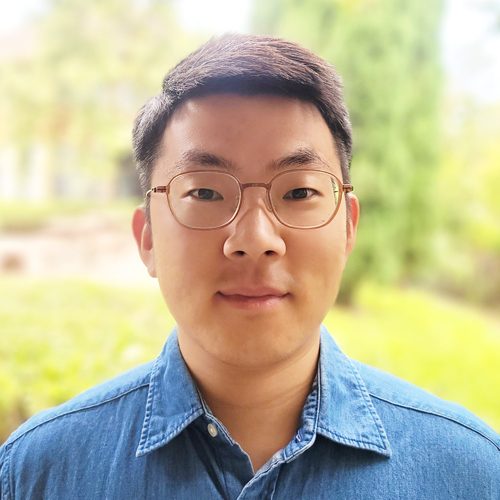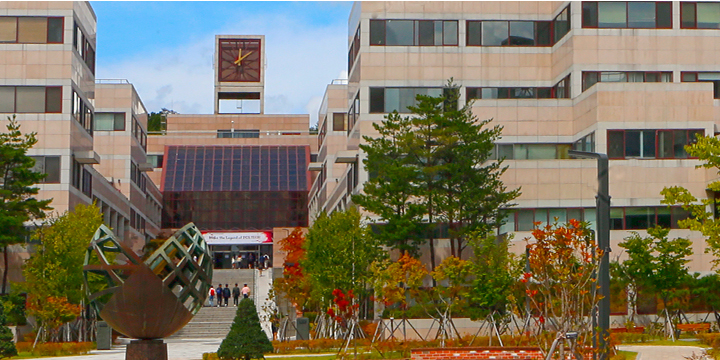
Our research group primarily focuses on probability theory and mathematical biology. Mathematical biology, which analyzes and predicts biological phenomena mathematically, has undergone significant changes over the past two decades. This shift originated from the recognition that dealing with uncertainty (randomness) in the microscopic aspects of biological phenomena is crucial.
As a result of this change, research utilizing stochastic processes to mathematically analyze micro-level biological phenomena gained attention. Among various stochastic processes, our laboratory primarily deals with continuous-time Markov chains. Markov chains, also known as Markov jump processes, are predominantly used to analyze the quantities of entities involved in biochemical phenomena within cells over time.
The significant feature of Markov chains is that the probability of a specific reaction occurring next depends solely on the current state rather than the past state. This assumption allows for the analysis of the quantities of biochemical species at the microscopic level by assuming that various biochemical reactions within a cell solely depend on the numbers of biochemical species in the system at the present time. Consequently, Markov chains are widely used to analyze the quantities of entities at the micro-level of biological phenomena.
While the broader trend in mathematical biology is to focus on analyzing open problems associated with specific biological phenomena such as cancer metastasis or bacterial differentiation, our laboratory, conversely, conducts research aimed at identifying which mathematical properties (such as stability, convergence, convergence rate, etc.) are satisfied by particular biological phenomena. This can be described as seeking dynamical properties using the topological structure of biochemical reactions.
To systematically conduct the aforementioned research, one needs to study the chemical reaction network theory, representing biochemical reactions as networks and relating their structural and topological features to dynamical properties of the associated differential equations or stochastic processes. In 1970, it was found that the topological properties of chemical reaction networks play a significant role in proving the stability or convergence of the differential equations representing biochemical reactions involved in the chemical reaction networks. Afterwards, many studies have been focusing on connecting the qualitative properties of differential equations or Markov chains with the topological properties of networks.
Moving beyond theoretical aspects of dynamical properties of Markov chains mentioned earlier, our research does not solely stop at deriving theoretical results but also utilizes these results directly in practical studies involving biological phenomena. For instance, leveraging the stability of Markov chains to achieve system controllability by attaching biochemical controllers to existing biological systems. We also have represented DNA movement using random walkers or Markov chains to discover characteristics not easily observable in experiments. Currently, our research group have several ongoing projects on probability-related biological phenomena, such as plasma chemical reactions or liquid-liquid phase separations.
One prominent trend in mathematical biology involves utilizing artificial intelligence to uncover hidden patterns within biological data and constructing mathematical models for analysis. However, rather than following this trend, our laboratory pursues a different approach. We aim to create new computational algorithms inspired by biological phenomena such as inventing or realizing artificial intelligence algorithms using chemical reactions.
One of the main goals of our laboratory is to solve so-called Positive Recurrence Conjecture, which roughly means that every well-connected and spatially well-mixed biochemical systems is stochastically stable. In general, we try to uncover governing rules of biological phenomena, particularly using probabilistic theories. Similar to physics, we also aim to newly define crucial probabilistic problems arising from biological phenomena and solve them. Lastly, one of our long-term plans involves creating new mathematical theories in the field of biology computing, as previously mentioned.
Our students mainly work on both theoretical problems associated with Markov chains and practical research utilizing probability theory. For the former, we conduct regular journal clubs focused on probability-related papers. For the latter, we collaborate with researchers from various laboratories of life sciences, bioengineering and medical sciences at national and international institutions including POSTECH. Considering the nature of mathematical biology, where sharing research with diverse fields and collaborating is crucial, we give a chance to lstudents for visiting overseas research institutions or universities for a minimum of 6 months. This opportunity will encourage them to meet various researchers from the global mathematical biology community and diverse fields, share their research ideas, and have collaborations.










 ?php echo aslang('alert','is_login_service'); ?>
?php echo aslang('alert','is_login_service'); ?>




.png)











